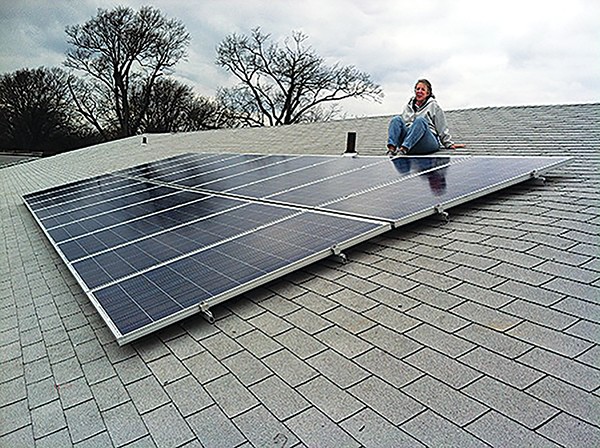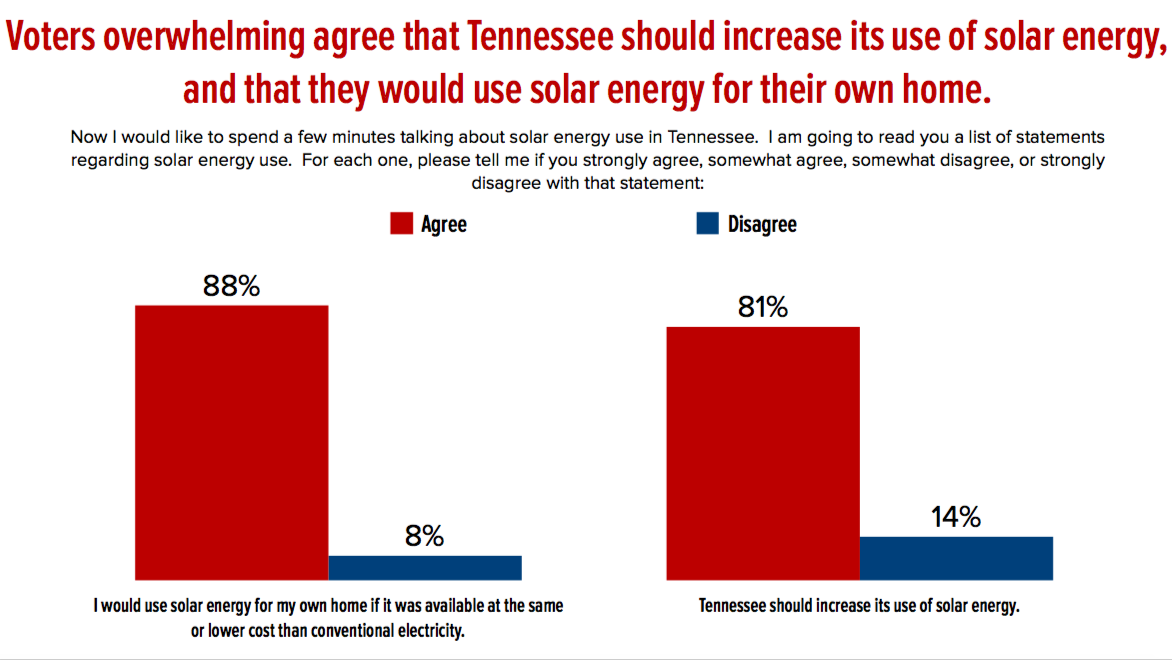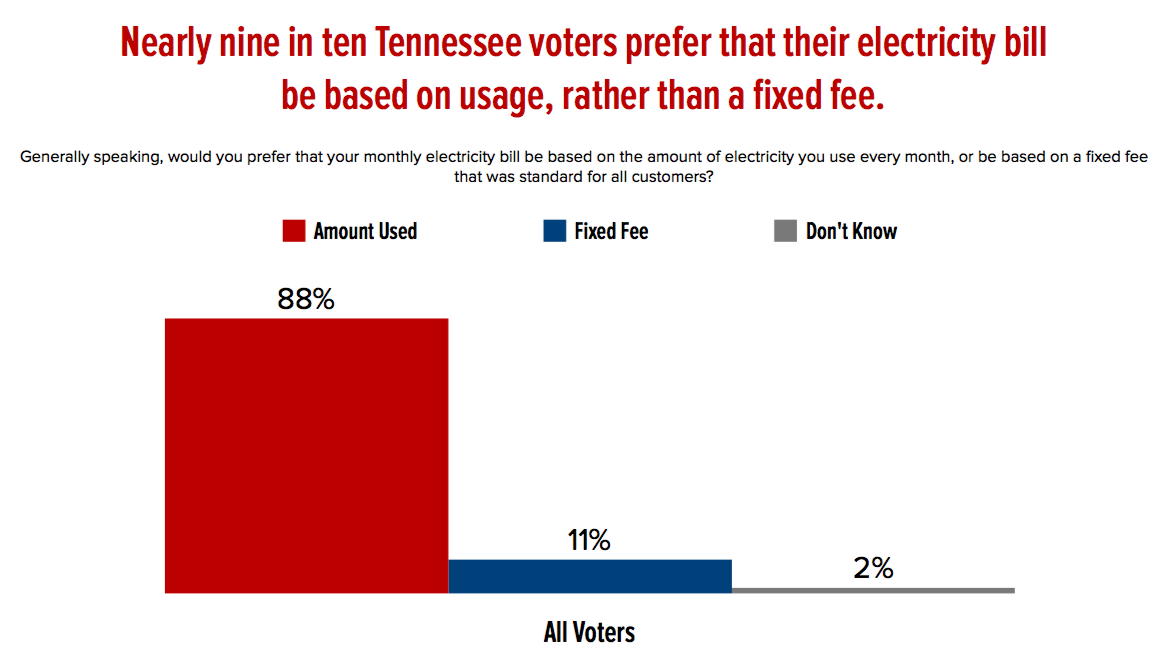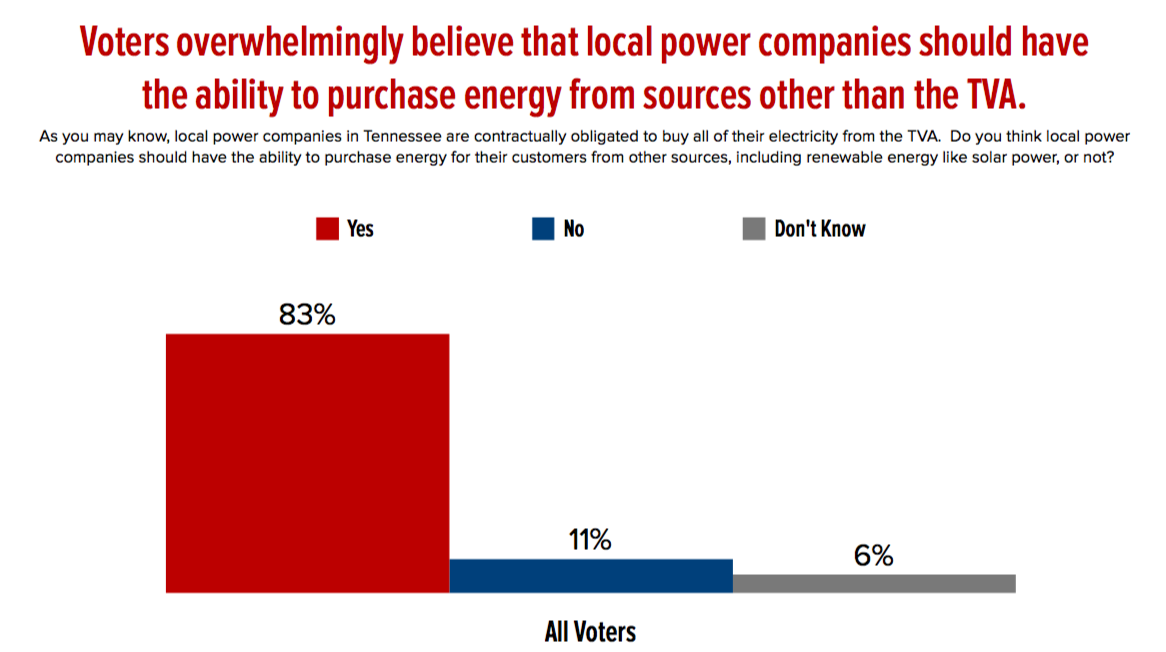
First Congo’s very first solar panels.
New poll numbers show Tennesseans support solar power and that local utility companies like Memphis Light, Gas & Water (MLGW) should be able to buy power from sources other than the Tennessee Valley Authority (TVA).
Pollsters called 600 registered Tennessee voters in late October for Tennesseans for Solar Choice (TSC), a coalition working to expand solar energy in Tennessee.
The poll was a reaction to the TVA’s announcement earlier this year that it was considering a move that would, among other things, charge consumers more if they generated their own energy, used energy-efficient appliances, and more.
The TSC found that 81 percent of those polled wanted more solar energy produced in Tennessee. Of those polled, 88 percent said they wanted solar panels on their homes.

“The fact that nearly nine in ten Tennessee voters prefer that their electricity bill be based on usage, rather than a fixed fee (or so called ‘grid access fee’) should not be a surprise,” stated Elder Jimmie Garland, Vice President Middle TN for the TN State Conference NAACP. “Forcing these additional fees onto customers every month is a regressive move that is not in the best interest of consumers and will especially hurt families on low and fixed income.”
Electricity bills should be based on usage, not a flat fee, poll participants said.

“With actions like increasing mandatory fixed charges, limiting contracts with solar companies, and not paying fair rates for solar generation, TVA is undermining the solar power market, all in a desperate attempt to maintain control of power generation and limit customer choice,” said Dr. Stephen A. Smith, executive director of the Southern Alliance for Clean Energy.
Also, MLGW and others should be able to buy power from sources other than TVA.

“Small businesses are the economic backbone of our Tennessee communities, generating the majority of job growth and local economic activity, despite constant competition against large corporations every day,” said Lenda Sherrell, state director for the Tennessee Small Business Alliance. “To now be faced with the prospect of reduced credit for solar energy generated through their own investment as well as limitations and uncertainty on the rights to contract with someone other than their local power company or TVA for solar energy, is an unfair penalization to our small business community.”
TVA is currently in talks with utility companies across the Tennessee Valley about the possible change. Though, no formal timeline on the decision has been released, some expect a decision could come as early as the first quarter of 2018.